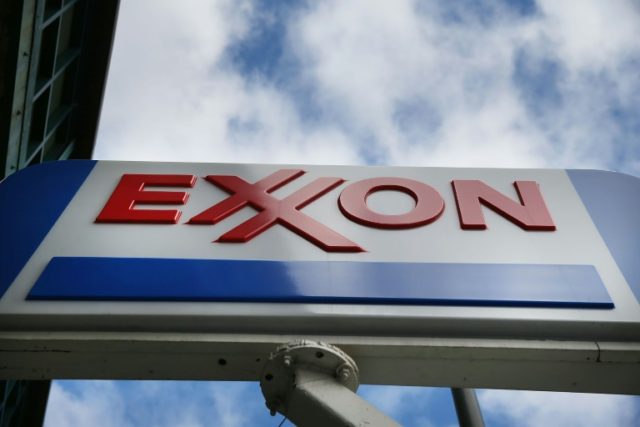New York (AFP) – ExxonMobil and Chevron on Friday both posted higher first-quarter earnings on higher oil prices but shares of ExxonMobil took a hit on disappointing oil and gas output.
Net income at ExxonMobil jumped 16 percent from the year-ago period to $4.7 billion, while revenues rose 16.3 percent to $68.2 billion.
At Chevron, earnings surged 35.6 percent to $3.6 billion compared to the first three months of 2017, while revenues rose 14.1 percent to $36.0 billion.
Higher oil prices lifted profits in exploration and production for both companies. Prices got another boost by last week’s meeting in Saudi Arabia where OPEC nations and Russia signaled they would keep limiting production.
Exxon Mobil’s per-share profits lagged analyst expectations, while Chevron’s topped estimates, leading to sharply different reactions on Wall Street.
ExxonMobil sank 3.5 percent in late-morning trading to $78.05, making it the worst performer in the Dow, while Chevron rose 1.7 percent to $126.36.
Analysts said Exxon Mobil’s oil and gas production disappointed with the company reporting its weakest oil and gas output since 1999 at 3.9 million barrels of oil-equivalent, down 6.3 percent. One factor was an outage in a big liquefied natural gas project in Papua New Guinea following an earthquake.
Goldman Sachs characterized Exxon Mobil’s report as “soft” in contrast with Chevron’s “relatively strong” results, which included a 6.6 percent jump in first-quarter oil and gas output.
– Oil prices and growth –
US oil futures lingered above $60 a barrel for most of the first quarter, about $10 to $15 more than a year-ago, and some analysts have begun to caution that sustained higher prices would boost inflation and could slow global growth. The World Bank projects oil prices will average $65 this year.
The oil company earnings follow a stream of reports from other industrial companies this week that underscored new cost challenges from higher commodity prices.
American Airlines Chief Executive Doug Parker described higher fuel prices as a major earnings challenge as he commented on the company’s results on Thursday. He said the carrier would need to raise ticket prices if the situation lasts. Fuel is the second biggest cost in the airline industry after labor.
Others, including freight rail company Union Pacific and UPS, also reported a significant jump in fuel costs in the first quarter.
Oxford Economics on Thursday said it had upgraded its assumption for oil prices, which it projects will peak at $75 a barrel before retreating to around $67 a barrel by the end of 2019.
But a scenario of prices at $85 and lingering at that level through the end of 2020 would reduce global growth by 0.6 percent, with the biggest hit regions being emerging economies such as China, India, Indonesia and Turkey, according to Oxford, a forecasting and quantitative analysis firm.

COMMENTS
Please let us know if you're having issues with commenting.